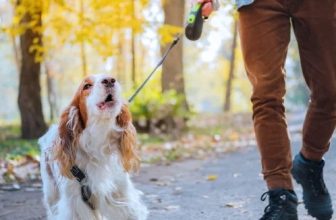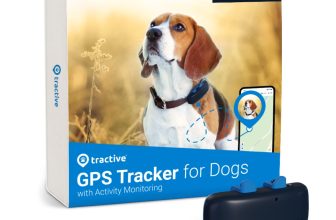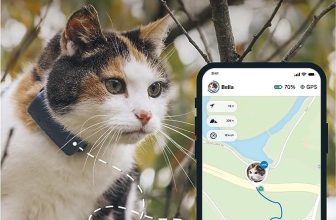How Can I Train a Puppy: Quick & Effective Tips
How Can I Train a Puppy? Training a puppy is essential for a happy pet and owner. It builds a strong bond and helps your puppy learn good behaviour.

How Can I Train a Puppy?
Credit: www.robcary.com
Introduction To Puppy Training
Bringing home a new dog is a great joy. It also has several obligations. Puppies require love, care, and training. Training teaches them good manners. It makes living together easier and more enjoyable.
Setting reasonable expectations is crucial. Puppies may not learn everything quickly. They can have an accident at home. Patience and constancy are crucial. Training should be an enjoyable experience for both of you.
To train a puppy, begin with simple commands. Use simple words such as “sit” or “stay.” Always reward positive behaviour. Treats and praise work wonderfully. This allows children to learn faster and enjoy training.
Essentials Before Training Begins
Having the proper supplies is essential for puppy training. You’ll need a nice collar and leash. Select a suitable bed for your pet. Food and water bowls are also necessary. Get quality puppy food for healthy growth.
Creating a puppy-friendly environment is key. Make sure your home is safe. Remove dangerous items from reach. Set up a specific area for your puppy to play. Use baby gates to limit their space.
Keep training supplies close. Treats will help with positive reinforcement. Toys can keep your puppy engaged. Make training fun and rewarding.
Establishing A Routine
Setting feeding times helps your puppy know when to eat. Choose a high-quality diet that suits their age. Puppies need more protein and fat than adult dogs.
Potty training is very important. Take your puppy outside frequently. After eating, drinking, or waking up are good times. Praise them when they go potty outside. This helps them learn.
Be patient and consistent. Mistakes will happen. Clean up accidents without fuss. This teaches your puppy what to do.

How Can I Train a Puppy?
Credit: www.thepuppyacademy.com
Socialization Skills
This exposure prepares children to adjust to unforeseen situations. Always keep your puppy on leash. This ensures their safety on expeditions.
Remember that patience is essential. Every dog learns at their own rate.
Celebrate minor accomplishments.
Your dog will gain confidence over time.
Basic Command Training.
Training a dog is both enjoyable and important. Begin with simple commands such as sit, remain, and come. Use goodies to promote positive behaviour. Keep training sessions brief. Puppies have a limited attention span.
Hold a treat above the puppy’s nose to get him to sit.
Behavioral Training
Training a puppy requires patience and care. Curbing biting and chewing helps create good habits. Offer chew toys to keep them busy. If they bite, say “no” firmly. Redirect them to a toy. Praise them when they chew on the toy. This helps them learn what is okay to bite.
Handling jumping and barking is also important. Teach your puppy to sit when meeting people. Use treats to reward them for sitting. For barking, identify the cause. If they bark for attention, ignore them until quiet. Reward silence with praise. This teaches them calm behaviour.
Advanced Training Techniques
Leash training</strong is very important for your puppy. Start by using a comfortable collar and leash. Teach your puppy to walk beside you. Reward them with treats for good behaviour. Practice in a quiet area first. Gradually increase distractions.
Walking etiquette is key. Teach your puppy not to pull on the leash. Use a short leash in crowded places. Always stop if your puppy pulls. Wait for them to calm down before walking again.
Tricks and agility skills are fun for dogs. Start with simple tricks like sit and stay. Use treats to encourage your puppy. Keep training sessions short and fun. Gradually introduce agility equipment. Teach them to jump over small hurdles.
Regular practice helps your puppy learn. Be patient and celebrate small wins. Training builds a strong bond between you and your puppy.
Common Training Challenges
Training a stubborn puppy can be tough. They may ignore commands. Stay patient and calm. Use positive reinforcement like treats. This helps them learn better. Keep training sessions short. Puppies have short attention spans.
Separation anxiety is common in puppies. They may cry or bark when alone. To help, start with short absences. Gradually increase the time away. Give them a safe space. Toys can keep them busy. Always reward calm behaviour. This builds their confidence.
Health And Wellness In Training
Regular vet check-ups are very important for your puppy. They help find any health issues early. Make sure to keep up with vaccinations. This protects your puppy from many diseases.
Exercise is key for a happy puppy. Daily walks help them stay healthy. Playing fetch or tug-of-war is fun and good for fitness. Mental games also help keep your puppy sharp.
Socialising your puppy is vital too. Meet other dogs and people. This helps them learn and feel safe. A well-rounded puppy is a happy puppy.
Conclusion: Patience Leads To Success
Training a puppy is a journey. Celebrate small wins along the way. Every milestone matters. Your puppy learns with each step. Give lots of praise and encouragement. This helps build their confidence.
Always find time for continued learning. Keep teaching new commands. This strengthens your bond. Play games that involve learning. This makes training fun for both of you. Remember, patience is key. Every puppy learns at their own pace.
| Milestones | Celebration Ideas |
|---|---|
| First sit | Give a small treat |
| First stay | Play their favorite game |
| First walk | Enjoy a fun outing |

How Can I Train a Puppy?
Credit: www.thesprucepets.com
Frequently Asked Questions
How Do I Start Training My Puppy?
To train your puppy with basic commands like “sit,” “stay,” and “come. ” Use positive reinforcement techniques, such as treats and praise, to encourage good behavior. Consistency is key; practice short sessions daily to help your puppy learn effectively. Socialization with other pets and people is also important during this stage.
What Is The Best Age To Train A Puppy?
The best age to start training a puppy is around 8 weeks old. At this age, puppies are more receptive to learning and socialisation. Early training helps establish good habits and reduces the likelihood of behavioural issues later. Continue training consistently as your puppy grows for optimal results.
How Long Should Training Sessions Be?
Training sessions should last between 5 and 15 minutes. Puppies have short attention spans, so keep sessions engaging and fun. Frequent, short sessions are more effective than long ones. Aim for multiple sessions throughout the day to reinforce learning and maintain your puppy’s interest.
What Are Some Common Puppy Training Mistakes?
Common puppy training mistakes include inconsistency and using negative reinforcement. Avoid yelling or punishment, as it can create fear. Additionally, not socialising your puppy early can lead to behavioural issues. Always reward positive behaviour and be patient; training takes time and dedication.
Conclusion
To train a puppy takes time and patience. Use positive reinforcement to encourage good behaviour. Be consistent with commands and rules. Short training sessions work best for young pups. Remember to keep it fun and rewarding. Celebrate small victories along the way.
A well-trained puppy grows into a happy, obedient dog. Enjoy the journey together. With love and effort, you will build a strong bond. Happy training!






